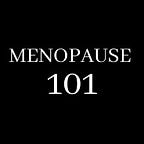Understanding Mood Swings During Menopause
By Dr. Suzanne Gilberg-Lenz
When people who menstruate reach a certain age (usually their mid-to-late 40s, although it can begin earlier or later — everyone is different), perimenopause begins, bringing with it a whole slew of changes to the body — and the mind. When it comes to symptoms and side effects of the menopausal transition, we tend to think first of the physical side of things — hot flashes, weight gain, dry hair, vaginal dryness, the list goes on. But it’s important not to overlook the impact perimenopause and menopause can have on our mental and emotional health, too. With that in mind, let’s talk about mood swings, which are a very real and, potentially, very serious symptom of menopause.
What Kind of Mood Issues Are Caused by Menopause?
The worst bits of pop culture turn menopausal mood swings into the punchline of a joke, but they’re really anything but. Mood swings during perimenopause, menopause, and postmenopause aren’t funny at all, not for the person experiencing them nor, often, for those around them.
On the less severe and troubling end of the spectrum people can experience increased moodiness and irritability during the menopausal transition, but some experience more severe mental health issues, like panic disorder and depression.
Panic disorder is marked by frequent, seemingly-unprompted panic attacks. If you’ve struggled with anxiety-related issues or suffered from postpartum depression in the past, you may be more likely to develop panic disorder during menopause.
Why Does Menopause Affect Your Mood?
As with so many changes wrought by menopause (and perimenopause), hormones appear to be the key to understanding menopausal mood swings. In a broad sense, hormone levels can affect neurotransmitters in the brain, leading to changes in mood. More specifically, the decrease in estrogen women experience during perimenopause and menopause can cause hot flashes, another classic menopausal symptom that can disrupt sleep. When hot flashes hit at night, they’re often called “night sweats” and frequently lead to unexpected awakening and lower quality of sleep overall. Poor sleep quality can also take a mental and emotional toll, leading to anxiety and mood swings.
Menopause and Depression: What’s Going On?
Although there has been some controversy over the years about the link between menopause and depression, a growing body of research suggests that there is indeed a high risk of depression during the menopausal transition. There is evidence that incidents of depression double for women during perimenopause and menopause and that women who have struggled with depression at earlier points in their lives are at an even greater risk of depression during the menopausal transition.
Experts say this actually isn’t all that surprising, given the effect that changing hormone levels have on women at other points in their lives, like before menstruation for women who suffer from Premenstrual dysphoric disorder or after childbirth for women who struggle with postpartum depression.
While changing levels of progesterone and estradiol (the most potent kind of estrogen) have been linked to symptoms of depression during perimenopause in particular, it’s unlikely that a woman who never struggled with depression at an earlier point in her life would develop severe depression during menopause. And, although some women do experience major depression during menopause, researchers say there’s not really a clear link between those severe cases and hormone changes in menopausal women.
How Can You Treat Mood Swings During Menopause?
Here’s what’s important: If you are experiencing mood swings during menopause, you have treatment options available.
Hormone Therapy
Hormone therapy has been found to be an effective option for treating menopausal mood swings, particularly depression. It’s important to consider the risks associated with hormone therapy, however, including nausea, cramps, headache, increased appetite, unwanted bleeding, and — potentially, in some women, particularly those with genetic predispositions — an increased risk of breast cancer. You should talk to your doctor about the risks and benefits of hormone therapy when considering if it’s right for you.
Antidepressants
Just like depression and mood issues faced during other points of life, menopausal depression and mood swings could be helped with antidepressants, especially SSRIs like fluoxetine (Prozac), citalopram (Celexa), escitalopram (Lexapro), sertraline (Zoloft), and paroxetine (Paxil).
Cognitive Behavioral Therapy
Cognitive Behavioral Therapy (CBT) is frequently used to treat anxiety and depression and can be an effective way to manage mood swings and depression during perimenopause and menopause without the use of hormones or medication.
The information provided on StateOfMenopause.com is not intended and should not be construed as medical advice, treatment, or diagnosis. Always seek the guidance of a qualified healthcare provider with any questions or concerns regarding your health.
